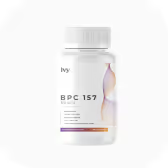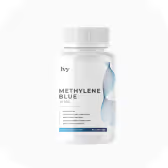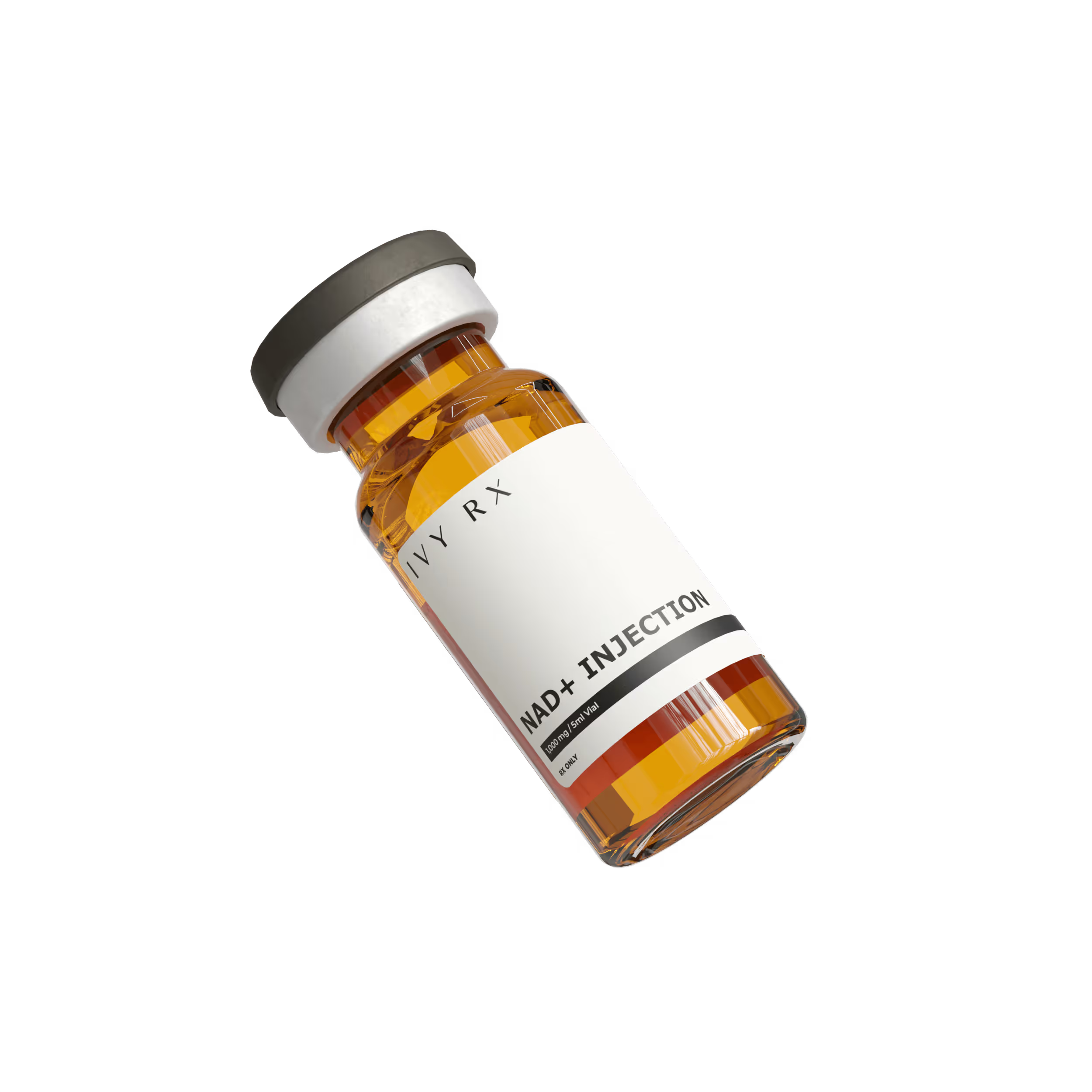Live longer with NAD+


Can NAD Slow Aging? Benefits & How It Works (What the Science Says)
Remember when you could bounce back from a late night without looking like you'd aged five years? Your body's declining NAD+ levels might explain why that doesn't happen anymore.
NAD+ is a vital molecule that helps your cells stay young, but it fades as you age. Now, scientific evidence shows that restoring NAD+ levels can potentially reverse multiple signs of aging.
We'll walk you through everything you need to know about NAD+. How it fights aging and the most effective ways to boost your levels, including convenient at-home options that make these powerful treatments accessible to everyone.
What Is NAD and How it Helps Anti-Aging?
Nicotinamide adenine dinucleotide (NAD+) acts like your body's battery charger at the cellular level. This tiny molecule powers hundreds of biological processes that keep you feeling young and energetic.
Think of NAD+ as the spark plug for your cells. Without enough of it, your cellular processes slow down, leading to visible signs of aging. The science says NAD+ plays a "pivotal role in cellular metabolism" and significantly impacts how we age.
The problem is your NAD+ levels naturally fall as you age, dropping by up to 50% between ages 40 and 60. This decline affects everything from your energy to how well your body repairs itself.
How NAD+ Supports Longevity
Your body depends on NAD+ to power the tiny processes that keep you alive and thriving. As NAD+ levels drop with age, those systems begin to slow down. By restoring NAD+, you’re giving your body the tools it needs to repair, regenerate, and resist age-related decline.

Here’s how it works:
Energy Production
Every movement you make, from blinking to running, requires energy. NAD+ is essential for converting food into ATP, the energy currency your cells use.
When NAD+ levels drop, so does your energy. That afternoon slump you feel isn't just normal aging and might be linked to declining NAD+ levels affecting your metabolic function.
DNA Repair
Your DNA gets damaged daily from sun exposure, pollution, and normal cellular processes. NAD+ helps repair this damage.
Studies show that NAD+ replenishment significantly improves DNA repair mechanisms, potentially preventing mutations that accelerate aging.
Cellular Health
NAD+ maintains the quality control systems in your cells that remove damaged components before they cause problems. It supports autophagy (cellular "cleanup") and reduces cellular senescence which is when old cells stop dividing and cause inflammation.
When NAD+ levels drop, this cleanup system falters. Think of it like garbage collection; if it stops working, waste builds up quickly, causing all sorts of problems for cellular health.
Brain Health
Your brain relies heavily on NAD+ for proper brain function and cognitive function.
Higher NAD+ levels may protect against cognitive decline and neurodegenerative diseases by reducing brain inflammation. Research found that NAD+ supplementation reduced inflammation and improved mental clarity in aging brains.
Sirtuin Activation
Sirtuins are your body's longevity genes, and they need NAD+ to function. These amazing proteins help regulate aging and protect against age-related disease.
Without enough NAD+, your sirtuins can't do their job of keeping you biologically younger.
Mitochondrial Function
Mitochondria power your cells and they need NAD+ to produce energy efficiently. As NAD+ levels decline, mitochondrial function suffers. This leads to less energy production and more waste products, accelerating the aging process at the cellular level.
Anti-Inflammatory Effects
Chronic inflammation drives many age-related conditions. NAD+ helps regulate your immune response and keep inflammation in check. Without sufficient NAD+, low-grade inflammation can simmer throughout your body, accelerating aging and increasing disease risk.
How to Boost NAD+ Naturally
Before turning to supplementing, it may be worth exploring how your body can make more NAD+ on its own. Certain foods, habits, and even how much you sleep can influence your natural NAD+ production.
Although, this will likely never recover NAD levels back to your previous, younger levels, let’s look at the simple changes that could have a big impact on your energy and aging process.
Nutrient-Rich Foods with NAD Precursors
Your body can make NAD+ from several building block nutrients:
- Fatty fish (tuna, salmon) rich in nicotinamide riboside
- Dairy products containing nicotinamide
- Mushrooms with high niacin content
- Lean meats providing tryptophan
- Green vegetables like avocados and asparagus
Adding these foods gives your body the raw materials it needs for NAD+ production.
Lifestyle Habits That Raise NAD+
Simple daily habits can significantly impact your NAD+ levels:
- Regular exercise, especially high-intensity interval training
- Getting 7-8 hours of quality sleep
- Practicing stress management techniques
- Trying intermittent fasting or caloric restriction
These practices naturally support your body's NAD+ production pathways.
NAD+ Supplements and Therapies: What You Should Know
When natural methods aren't enough, various NAD+ therapies can help restore youthful levels:
NAD+ Injection At-Home Therapy
NAD+ injections deliver the molecule directly into your bloodstream, bypassing digestive limitations.
Benefits include:
- Higher bioavailability than oral supplements
- Direct cellular absorption
- Potential improvements in energy within days
- Support for cellular repair mechanisms
You can try a free personalized NAD+ assessment at IvyRX to experience the benefits of NAD+ injections.
NMN and NR: What's the Difference?
Both nicotinamide mononucleotide (NMN) and nicotinamide riboside (NR) serve as NAD+ precursors:
NR is smaller and may cross cell membranes more easily. Studies show it can significantly increase NAD+ levels in humans.
NMN is converted to NR before entering cells. Some research suggests it may be particularly beneficial for vascular health and metabolic disorders.
Is NAD+ IV Therapy Effective or Just Hype?
NAD+ IV therapy delivers high doses directly into your bloodstream. Is it worth the higher cost and clinical setting?
Research points to significant increases in blood NAD+ levels after IV therapy. However, the convenience factor of newer at-home options like NAD+ injections or NAD+ nasal spray makes them increasingly popular alternatives.
The bottom line: While IV therapy works, similar benefits may be achievable through more convenient home-based approaches.
Side Effects and Safety Considerations
NAD+ therapy is generally well-tolerated, but be aware of potential side effects like:
- Mild flushing or warmth (temporary)
- Headache during administration
- Nausea in some individuals
- Mild injection site reactions
Always consult your healthcare provider before beginning any NAD+ regimen.
Who Might Benefit from NAD+ Support?
NAD+ therapy may be particularly beneficial if you're experiencing:
- Declining energy levels despite adequate sleep
- Persistent brain fog or reduced mental clarity
- Visible signs of premature aging
- Slower recovery from exercise
- Age-related metabolic changes
Many users report significant improvements in their energy levels after starting NAD+ therapy.
You can see of the remarkable before and after results of NAD+ anti-aging treatments.
But NAD+ therapy isn't for everyone. Consider alternatives if you:
- Are pregnant or breastfeeding
- Have severe kidney or liver disease
- Take medications that might interact with NAD+
- Have uncontrolled high blood pressure
How to Get NAD+ Therapy Online for Anti-Aging
Getting NAD+ therapy used to require trips to expensive clinics. Today, telehealth companies like IvyRx have made it accessible from home:
- Complete a free online health assessment
- Connect virtually with a licensed healthcare provider
- If approved, receive personalized NAD+ therapy delivered to your door
- Follow simple instructions for at-home administration
- Track your progress with ongoing provider support
This approach makes advanced anti-aging treatments accessible without the inconvenience of repeated clinic visits.
Take control of your aging process today. Start your NAD+ injection therapy journey with IvyRx's convenient at-home treatments.
Start Your Personalized NAD+ Therapy Journey with IvyRx
You may just have noticed the first signs of aging or want solutions for more energy and better cellular health, the goal is the same. More energy, better health, and a longer life.
IvyRx makes it simple to access personalized NAD+ therapy from home, with licensed providers guiding you every step of the way. From determining the right NAD+ injection dosage to choosing between various treatment options, our team helps you find what works best for your body.
You shouldn’t wait until NAD+ depletion leaves you feeling older than your years when you can support your body's natural anti-aging mechanisms.
Take the free assessment to see if NAD+ therapy is right for you.

Ivy RX patients
Members of Ivy RX branded medications were paid for their testimonials.
Related
articles

Key Differences Between Contrave vs Semaglutide for Weight Loss (Compared)
Trying to choose between Contrave and Semaglutide? Learn the key differences in effectiveness, dosing, and what kind of support you may need and…

Switching from Liraglutide to Semaglutide Safely & Effectively: Step-by-Step 2026 Guide
Thinking about switching from liraglutide to semaglutide? Learn how to transition safely, adjust dosage, and understand the benefits in our 2026 guide.

Does Medicaid Cover Ozempic & Other GLP-1’s? (2026 Guide)
Find out when Medicaid will cover Ozempic: for type 2 diabetes, cardiovascular risk, or off-label weight loss, and what to check in your state.

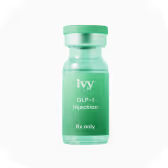


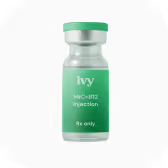


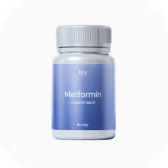

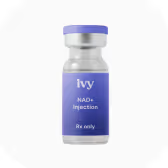
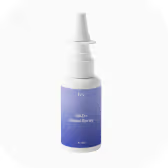


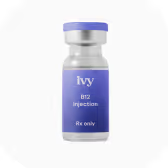
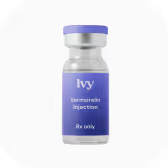
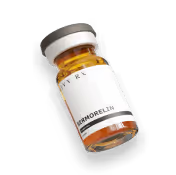
.avif)

